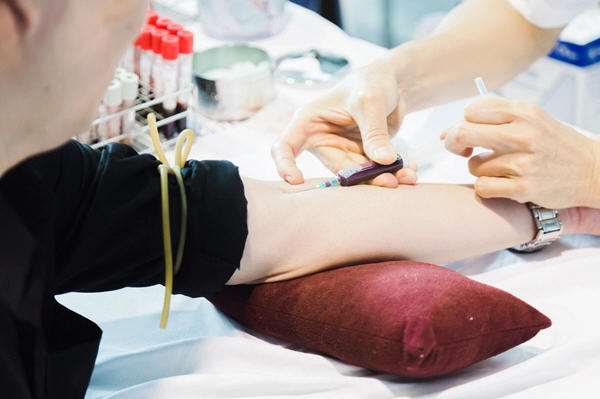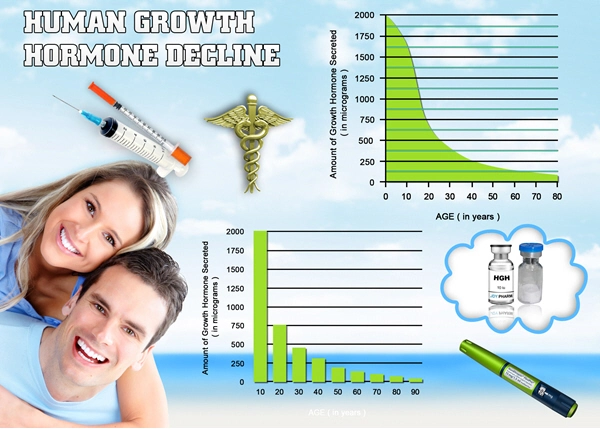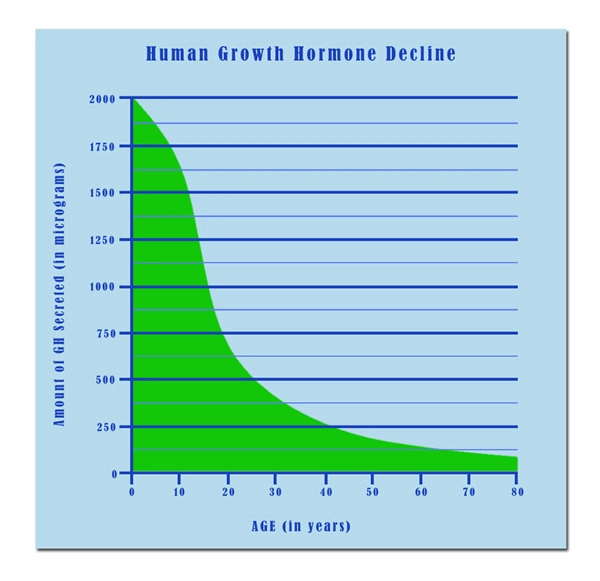Introduction
Testicular health is a crucial aspect of overall male wellness, influencing fertility, hormonal balance, and general health. Recent studies have begun to explore the relationship between physical activity and testicular function, particularly among American men. This article delves into the impact of exercise on testicular health, providing insights that are both scientifically grounded and relevant to the American male population.
The Importance of Testicular Health
Testicular health is paramount for men, as the testes are responsible for producing sperm and testosterone, both of which are essential for reproductive and sexual health. Issues such as testicular cancer, varicoceles, and hormonal imbalances can significantly affect a man's quality of life. Maintaining optimal testicular health is therefore not just about fertility but also about overall well-being.
Physical Activity and Testicular Function
Emerging research suggests that regular physical activity can positively influence testicular health. Exercise is known to improve blood circulation, which is vital for the testes, as they require a steady supply of oxygen and nutrients to function effectively. Moreover, physical activity can help regulate hormone levels, including testosterone, which is produced in the testes.
A study published in the *Journal of Urology* found that men who engaged in regular moderate to vigorous physical activity had a lower incidence of testicular dysfunction compared to their sedentary counterparts. The research indicated that activities such as running, swimming, and cycling could enhance testicular blood flow and reduce the risk of conditions like varicoceles, which are enlarged veins within the scrotum that can impair fertility.
Exercise and Hormonal Balance
Hormonal balance is another critical aspect of testicular health that can be influenced by physical activity. Regular exercise has been shown to increase testosterone levels, which can improve libido, muscle mass, and overall energy levels. A study in the *American Journal of Men's Health* highlighted that men who participated in resistance training experienced significant boosts in testosterone, suggesting a direct link between strength training and testicular function.
However, it is important to note that excessive exercise, particularly endurance sports, can have the opposite effect. Overtraining has been associated with decreased testosterone levels and potential testicular damage. Therefore, American men should aim for a balanced approach to exercise, incorporating both cardiovascular and strength training while avoiding excessive strain.
Preventing Testicular Cancer Through Physical Activity
Testicular cancer, although relatively rare, is the most common cancer among young American men. While the exact causes of testicular cancer are not fully understood, some studies suggest that a sedentary lifestyle may increase the risk. Conversely, regular physical activity has been linked to a reduced risk of developing this condition.
A comprehensive review in the *European Journal of Cancer Prevention* found that men who maintained an active lifestyle had a lower incidence of testicular cancer. The protective effects of exercise are thought to be related to improved immune function and reduced inflammation, both of which can play a role in cancer prevention.
Practical Recommendations for American Men
To optimize testicular health through physical activity, American men should consider the following recommendations:
1. **Engage in Regular Exercise:** Aim for at least 150 minutes of moderate aerobic activity or 75 minutes of vigorous activity per week, as recommended by the American Heart Association.
2. **Incorporate Strength Training:** Include strength training exercises at least two days a week to boost testosterone levels and support overall testicular function.
3. **Avoid Overtraining:** Balance exercise with adequate rest to prevent hormonal imbalances and potential testicular damage.
4. **Monitor Testicular Health:** Regular self-examinations and routine check-ups with a healthcare provider can help detect any issues early.
Conclusion
Physical activity plays a significant role in maintaining testicular health among American men. By engaging in regular, balanced exercise, men can enhance blood flow, regulate hormone levels, and potentially reduce the risk of testicular cancer. As research continues to uncover the intricate relationship between physical activity and testicular function, American men are encouraged to prioritize their health through an active lifestyle.

- Navigating Life After Testicular Cancer: A Guide for American Male Survivors [Last Updated On: February 19th, 2025] [Originally Added On: February 19th, 2025]
- Routine Check-ups Crucial for American Men's Testicular Health and Early Cancer Detection [Last Updated On: March 17th, 2025] [Originally Added On: March 17th, 2025]
- Testicular Health: Essential Guide for American Males' Physical and Mental Well-being [Last Updated On: March 17th, 2025] [Originally Added On: March 17th, 2025]
- Economic Challenges of Testicular Cancer Treatment for American Males: Costs and Support [Last Updated On: March 17th, 2025] [Originally Added On: March 17th, 2025]
- Testicular Health's Impact on Prostate Wellness in American Men: A Scientific Insight [Last Updated On: March 19th, 2025] [Originally Added On: March 19th, 2025]
- Testicular Health and Male Infertility: Diagnosis, Treatment, and Supportive Care [Last Updated On: March 19th, 2025] [Originally Added On: March 19th, 2025]
- Exercise Enhances Testicular Health in American Males: A Comprehensive Review [Last Updated On: March 20th, 2025] [Originally Added On: March 20th, 2025]
- Understanding Testicular Pain: Causes, Diagnosis, and Treatment for American Men [Last Updated On: March 20th, 2025] [Originally Added On: March 20th, 2025]
- Stress Impact on Testicular Health: Insights for American Men [Last Updated On: March 21st, 2025] [Originally Added On: March 21st, 2025]
- Diabetes and Testicular Health: Impacts and Management Strategies for American Men [Last Updated On: March 21st, 2025] [Originally Added On: March 21st, 2025]
- Testicular Health and Cardiovascular Disease: A Critical Link for American Men [Last Updated On: March 21st, 2025] [Originally Added On: March 21st, 2025]
- Educating Young American Males on Testicular Health: Importance and Impact [Last Updated On: March 21st, 2025] [Originally Added On: March 21st, 2025]
- Smoking's Harmful Effects on Testicular Health in American Males: A Comprehensive Analysis [Last Updated On: March 21st, 2025] [Originally Added On: March 21st, 2025]
- Testicular Cancer Screening: Guidelines and Self-Exam Techniques for American Men [Last Updated On: March 21st, 2025] [Originally Added On: March 21st, 2025]
- Ultrasound: Revolutionizing Testicular Health Diagnosis in American Males [Last Updated On: March 22nd, 2025] [Originally Added On: March 22nd, 2025]
- Testicular Health and Autoimmune Disorders: Insights for American Men [Last Updated On: March 22nd, 2025] [Originally Added On: March 22nd, 2025]
- Anabolic Steroids: Risks and Impacts on American Men's Testicular Health [Last Updated On: March 22nd, 2025] [Originally Added On: March 22nd, 2025]
- Testicular Health and Hormone Therapy: Essential Insights for American Men [Last Updated On: March 22nd, 2025] [Originally Added On: March 22nd, 2025]
- Viral Infections and Testicular Health: Impacts on Fertility in American Males [Last Updated On: March 23rd, 2025] [Originally Added On: March 23rd, 2025]
- Sleep Quality's Impact on Testicular Health: A Vital Link for American Males [Last Updated On: March 24th, 2025] [Originally Added On: March 24th, 2025]
- Radiation Therapy's Impact on Testicular Health: Insights for American Males [Last Updated On: March 24th, 2025] [Originally Added On: March 24th, 2025]
- Community Support Enhances Testicular Health Awareness in American Males [Last Updated On: March 24th, 2025] [Originally Added On: March 24th, 2025]
- Occupational Hazards and Testicular Health: Risks, Prevention, and Screening for American Workers [Last Updated On: March 24th, 2025] [Originally Added On: March 24th, 2025]
- Overcoming Psychological Barriers to Testicular Health Care in American Males [Last Updated On: March 25th, 2025] [Originally Added On: March 25th, 2025]
- Illicit Drugs' Impact on Testicular Health: Risks and Prevention for American Men [Last Updated On: March 25th, 2025] [Originally Added On: March 25th, 2025]
- Genetic Counseling's Vital Role in Preventing Testicular Cancer: Latest Advances [Last Updated On: March 25th, 2025] [Originally Added On: March 25th, 2025]
- Testicular Health: Vital for Preventing Chronic Diseases in American Males [Last Updated On: March 25th, 2025] [Originally Added On: March 25th, 2025]
- Endocrine Disruptors' Impact on Testicular Health: Risks and Mitigation for American Males [Last Updated On: March 25th, 2025] [Originally Added On: March 25th, 2025]
- Testicular Health in Aging American Men: Hormones, Monitoring, and Treatment Options [Last Updated On: March 25th, 2025] [Originally Added On: March 25th, 2025]
- Nutrition's Vital Role in American Men's Testicular Health and Fertility [Last Updated On: March 25th, 2025] [Originally Added On: March 25th, 2025]
- Public Health Campaigns Boost Testicular Health Awareness and Self-Exams in American Men [Last Updated On: March 26th, 2025] [Originally Added On: March 26th, 2025]
- Testicular Health and Reproductive Rights: Empowering American Men [Last Updated On: March 26th, 2025] [Originally Added On: March 26th, 2025]
- Socioeconomic Factors Impacting Testicular Health Care Access in American Males [Last Updated On: March 26th, 2025] [Originally Added On: March 26th, 2025]
- Breaking Barriers: Enhancing Testicular Health Awareness and Support for American Males [Last Updated On: March 26th, 2025] [Originally Added On: March 26th, 2025]
- Chemotherapy's Impact on Testicular Health in American Male Cancer Survivors [Last Updated On: March 26th, 2025] [Originally Added On: March 26th, 2025]
- Testicular Health and Cancer: Essentials, Detection, and Life After Diagnosis [Last Updated On: March 26th, 2025] [Originally Added On: March 26th, 2025]
- Lifestyle Diseases and Testicular Health: Strategies for American Men [Last Updated On: March 27th, 2025] [Originally Added On: March 27th, 2025]
- Antioxidants: Key to Enhancing Testicular Health and Fertility in American Men [Last Updated On: March 27th, 2025] [Originally Added On: March 27th, 2025]
- Testicular Health: Understanding Functions, Conditions, and Educational Needs for American Males [Last Updated On: March 27th, 2025] [Originally Added On: March 27th, 2025]
- Testicular Health's Psychological Impact on American Men's Body Image and Masculinity [Last Updated On: March 27th, 2025] [Originally Added On: March 27th, 2025]
- Alcohol's Impact on Testicular Health: Risks and Mitigation Strategies for Men [Last Updated On: March 27th, 2025] [Originally Added On: March 27th, 2025]
- Vitamins A, D, E, C, B, and Zinc: Essential for American Men's Testicular Health [Last Updated On: March 27th, 2025] [Originally Added On: March 27th, 2025]
- Testicular Health: Breaking Stigma, Promoting Self-Exams and Open Dialogue [Last Updated On: March 27th, 2025] [Originally Added On: March 27th, 2025]
- Environmental Impacts on Testicular Health: Awareness and Action for American Males [Last Updated On: March 27th, 2025] [Originally Added On: March 27th, 2025]
- Testicular Health and Immune Function: A Vital Connection for Male Wellness [Last Updated On: March 27th, 2025] [Originally Added On: March 27th, 2025]
- Heat Exposure and Testicular Health: Impacts and Strategies for American Men [Last Updated On: March 28th, 2025] [Originally Added On: March 28th, 2025]
- Support Groups: Vital for American Men with Testicular Cancer [Last Updated On: March 28th, 2025] [Originally Added On: March 28th, 2025]
- Modern Lifestyles and Their Impact on American Men's Testicular Health [Last Updated On: March 28th, 2025] [Originally Added On: March 28th, 2025]
- Telemedicine: Revolutionizing Testicular Health Services for American Men [Last Updated On: March 29th, 2025] [Originally Added On: March 29th, 2025]
- Managing Chronic Testicular Pain: Strategies and Prevention for Male Health [Last Updated On: March 29th, 2025] [Originally Added On: March 29th, 2025]
- Testicular Health: Cancer, Fertility, and Lifestyle Impact on American Males [Last Updated On: March 30th, 2025] [Originally Added On: March 30th, 2025]
- Testicular Health: Self-Exams, Cancer Awareness, and Preventive Lifestyle for American Males [Last Updated On: March 31st, 2025] [Originally Added On: March 31st, 2025]
- Herbal Supplements for Testicular Health: Benefits and Considerations for American Men [Last Updated On: April 2nd, 2025] [Originally Added On: April 2nd, 2025]
- Testicular Health and Mental Resilience: A Holistic Approach for American Men [Last Updated On: April 3rd, 2025] [Originally Added On: April 3rd, 2025]
- Antibiotics' Impact on Testicular Health: Risks and Strategies for American Men [Last Updated On: April 5th, 2025] [Originally Added On: April 5th, 2025]
- Testicular Health and Environmental Impact: A Call for Policy Change [Last Updated On: April 5th, 2025] [Originally Added On: April 5th, 2025]
- Promoting Testicular Health: Education, Self-Exams, and Public Health Initiatives for American Males [Last Updated On: April 6th, 2025] [Originally Added On: April 6th, 2025]
- Advancements in Testicular Health and Reproductive Technologies in the U.S. [Last Updated On: April 6th, 2025] [Originally Added On: April 6th, 2025]
- Pesticide Exposure and Testicular Health in American Men: A Growing Concern [Last Updated On: April 7th, 2025] [Originally Added On: April 7th, 2025]
- Mental Health Professionals' Vital Role in Enhancing Testicular Health Awareness Among American Men [Last Updated On: April 8th, 2025] [Originally Added On: April 8th, 2025]
- Heavy Metals' Impact on Testicular Health in American Men: Risks and Prevention [Last Updated On: April 8th, 2025] [Originally Added On: April 8th, 2025]
- Empowering American Males: Understanding and Promoting Testicular Health [Last Updated On: April 10th, 2025] [Originally Added On: April 10th, 2025]
- Plastics' Chemical Impact on Testicular Health in American Men: A Comprehensive Analysis [Last Updated On: April 12th, 2025] [Originally Added On: April 12th, 2025]
- Physical Therapy's Vital Role in Managing Testicular Health Issues for American Men [Last Updated On: April 12th, 2025] [Originally Added On: April 12th, 2025]
- Enhancing Men's Health: Integrating Testicular Health into Workplace Wellness Programs [Last Updated On: April 13th, 2025] [Originally Added On: April 13th, 2025]
- Testicular Health: Science, Common Conditions, and U.S. Reproductive Policies for Men [Last Updated On: April 13th, 2025] [Originally Added On: April 13th, 2025]
- Testicular Health: Cancer Risks, Self-Exams, and Fertility for American Males [Last Updated On: April 15th, 2025] [Originally Added On: April 15th, 2025]
- Genetic Testing: Revolutionizing Testicular Health Management for American Men [Last Updated On: April 15th, 2025] [Originally Added On: April 15th, 2025]
- Air Pollution's Impact on American Men's Testicular Health: Emerging Research and Concerns [Last Updated On: April 15th, 2025] [Originally Added On: April 15th, 2025]
- Testicular Health Advocacy: Urgent Need for Policy Change and Public Awareness [Last Updated On: April 16th, 2025] [Originally Added On: April 16th, 2025]
- Testicular Health and Mental Well-being: A Holistic Guide for American Males [Last Updated On: April 16th, 2025] [Originally Added On: April 16th, 2025]
- Integrating Testicular and Mental Health Services for Holistic Male Care [Last Updated On: April 17th, 2025] [Originally Added On: April 17th, 2025]
- Educational Campaigns Boost Testicular Cancer Awareness and Early Detection in American Men [Last Updated On: April 18th, 2025] [Originally Added On: April 18th, 2025]
- Exercise Benefits for Testicular Health in American Men: A Comprehensive Guide [Last Updated On: April 18th, 2025] [Originally Added On: April 18th, 2025]
- Water Contaminants' Impact on Testicular Health: Risks and Mitigation Strategies [Last Updated On: April 18th, 2025] [Originally Added On: April 18th, 2025]
- Nutrition's Vital Role in American Males' Testicular Health and Function [Last Updated On: April 18th, 2025] [Originally Added On: April 18th, 2025]



List of USA state clinics - click a flag below for blood testing clinics.
Word Count: 643



















































